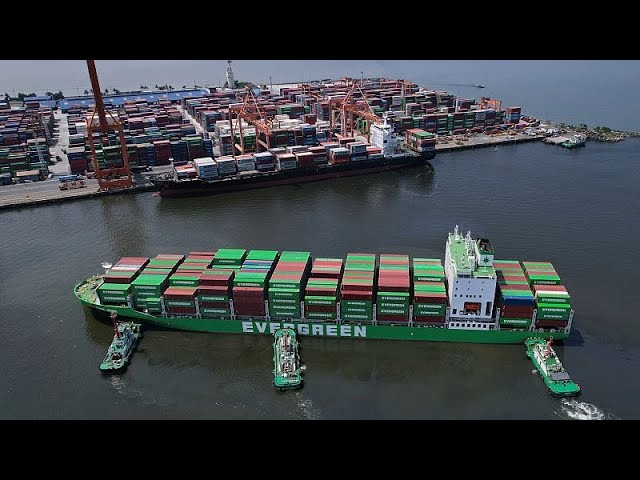The deal is the first global CO2 price in any sector, according to shipping agency International Maritime Organization.
Shipping companies will have to pay a fee for every ton of greenhouse gases they make, according to the United Nations.
Countries at the U.N. shipping agency International Maritime Organization (IMO) voted for the rules on April 11 at its London headquarters.
The draft net-zero framework regulations are set to be formally adopted in October and to go into effect in 2027.
The IMO, a specialized agency that regulates maritime transport, said the rules were the first in the world to combine mandatory emissions limits and greenhouse gas pricing across an entire industry sector.
The rules will become mandatory for large ocean-going ships of more than 5,000 gross tonnage.
From 2028, ships will be charged a penalty of $380 per metric ton on every extra ton of CO2 equivalent they emit above a fixed emissions threshold, plus a penalty of $100 per ton on emissions above a stricter emissions limit.
“Low-emission” ships—those that operate under the benchmarks—will be eligible for incentives or lower compliance costs, creating a financial motivation to decarbonize.
IMO Secretary-General Arsenio Dominguez said in a statement that the rules represent “another significant step in … efforts to combat climate change“ and ”to modernize shipping.”
The International Chamber of Shipping said that it welcomed the measures.
On April 11, the trade association, which represents about 80 percent of the world’s merchant tonnage, said it has been advocating for a globally agreed carbon price since 2021.
Guy Platten, secretary-general of the International Chamber of Shipping, said, “Shipping is now at the forefront of efforts to decarbonize rapidly to address the climate crisis.”
Cheap and energy-dense heavy fuel oil is used by 75 percent of all marine vessel types globally, according to the UK government.
However, biofuels—in the form of methane, methanol, or fuel oils—which are touted as a convenient way for shipping companies to reduce their carbon emissions, may have their own problems.
According to Transport & Environment (T&E), a European nongovernmental organization dedicated to promoting “sustainable transport,” the new rules could generate about $10 billion per year until 2035.
By Owen Evans









